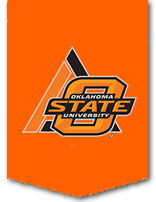Nurhan Dunford, Ph.D.
Oil/Oilseed Specialist
- DISCIPLINE:
Oil/Oilseed Chemistry
- AREA OF EXPERTISE:

Oilseed chemistry, food process engineering and biodiesel
- GENERAL AREAS OF RESEARCH:
Products gleaned from wheat in a wheat biorefinery; biofuels sourced from food and agricultural waste products; bioproducts from micro algae; studies on the stability of oils for food production; process development and optimization for biofuel, functional foods and nutraceutical production.
- CONTACT:
Address: Oklahoma State University
Robert M. Kerr Food & Agricultural Products Center
103 FAPC
Stillwater, OK 74078
Phone: 405-744-7062
Fax: 405-744-6313
E-mail: nurhan.dunford@okstate.edu
- CURRENT RESEARCH PROJECTS:
- Development of a Wheat Biorefinery System for Oklahoma.
Considering that wheat is the largest-acreage crop grown and milled in the state, development of high-value products from the wheat milling industry is critical to sustain a strong agricultural sector in Oklahoma. Dr. Dunford’s research group has developed and optimized wheat germ and bran processing techniques, and these processes have been used to produce nutritionally enhanced wheat germ oil and natural extracts enriched in antioxidants. These products are currently being tested for efficacy to reduce inflammation reactions. The manufacturing techniques developed in this program are inexpensive and easy to operate. Hence, they can be adapted by small processors in the state. It might also be possible that these products could be commercialized by farmer-cooperatives.
- Evaluation of Oklahoma Native Microalgae Strains for Bioproduct Manufacturing.
This is an integrated research project targeting both environmental remediation and feedstock production for bioproduct manufacturing. The goal is to grow Oklahoma native algae strains on animal and industrial waste-water. It is expected that these strains will be more productive in their native climate than the non-native strains and they will produce biomass and oil while minimizing the impact of production on ecosystems.
The ultimate goal is to optimize algal biomass and oil production and oil/biomass to biofuel conversion processes that can be adapted by Oklahoma-based companies for commercial production.
This project has already resulted in an M.S. thesis, numerous oral and poster presentations at local, national and international conferences and peer-review journal articles. Algae growth and processing demonstration modules installed in the BAE greenhouse are being used for hands-on undergraduate and graduate student education. Extension training programs are in the planning stage.
- Adding value to canola oil processing by-products.
Canola has become a very important rotational cash crop for Oklahoma. One company in the state processes canola seeds and sells crude oil. Another canola processing plant is in the planning stage. Conversion of process by-products to high-value products is important for economic viability of canola processing operations. Dr. Dunford’s research group has been exploring process development for recovery of phospholipids and glycolipids which are by-products removed from canola crude oil during refining. These compounds can be used as surfactants and emulsifiers in food and other industrial products.
It is expected that successful completion of this project will lead to commercialization of canola based value-added products and consequently improve the feasibility of canola processing in the state. A Ph.D. graduate student (Ms. Meizhen Xie) has been working on the project., and her defense was completed in November 2013. Her planned graduation date is at the end of the 2014 spring semester.
- Thermal Characterization of Potential Biofuel and Bioproduct Feedstocks Grown in Oklahoma.
The objective of this study has been to evaluate the potential of Oklahoma grown crops for biofuel and bioproduct production. Feedstock selection for a given process requires data on chemical, physical and thermal characteristics of the materials of interest. This study examines wheat and barley straw, sorghum stover, animal fat and microalgae as potential feedstocks. Differential scanning calorimeter (DSC) and Thermogravimetric Analyses (TGA) techniques are being used to determine the thermal characteristics of Oklahoma grown crops. Chemical and physical characterization of the materials will also be examined.
This project is being led by a master’s graduate student. Expected project completion date is 2014.

